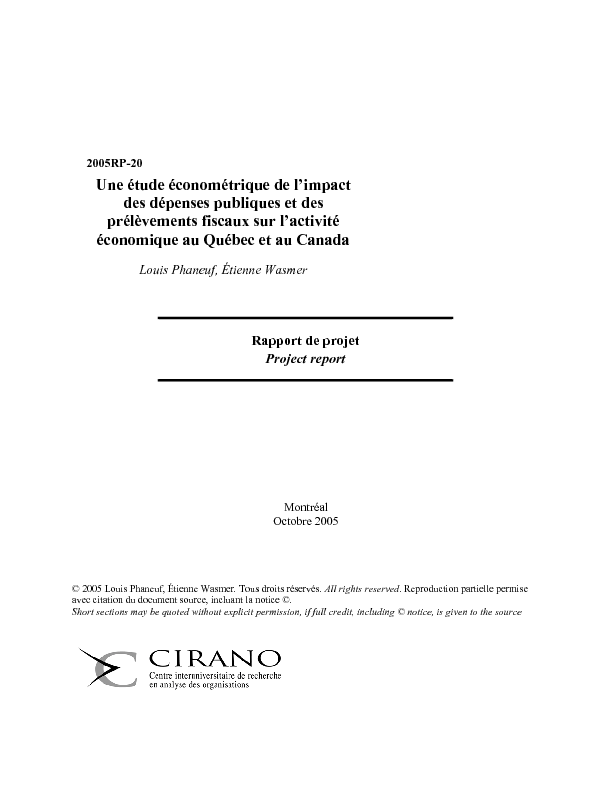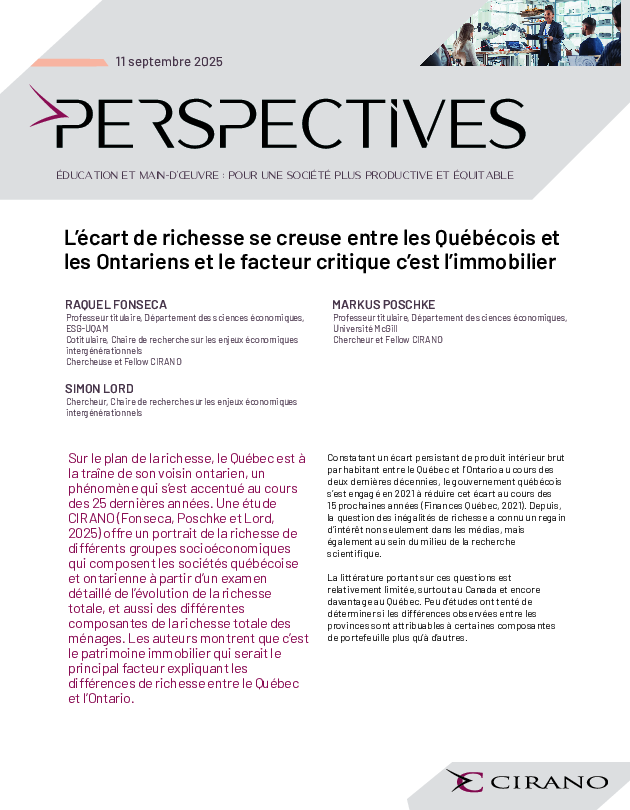Une étude économétrique de l'impact des dépenses publiques et des prélèvements fiscaux sur l'activité économique au Québec et au Canada
What is the impact of government policy on economic activity in Quebec and Canada? Do taxes have a distorsive effect? Does spending stimulate activity? Is the net outcome positive, neutral or negative from a macroeconomic perspective? We address these questions here. We attempt to clarify the relative merits of several empirical strategies and then propose a series of answers in the context of Quebec and Canada, for which we measure, in particular, the quantitative impact of taxes and public spending on GDP. For this purpose, we use a semi-structural vector-autoregressive approach (SVAR). For the first time, we apply this methodology to Quebec as a result of the recent availability of quarterly time-series data. Our main findings are as follows. 1) Fiscal shocks and spending shocks are relatively persistent the latter being more persistent; 2) output shocks are the most persistent of all shocks; 3) public spending generates more output in the short run, but the increase is modest; 4) distorsive effects of taxes reduce output; 5) when the effects 3) and 4) propagate over time, negative effects of taxes seem to dominate after a few years. Two additional results, the robustness of which needs to be checked, open interesting new perspective. We find that 6) spending multipliers are smaller at the federal level with respect to the provincial level and 7) distorsive effects of taxes seem to be larger.
[ - ]




